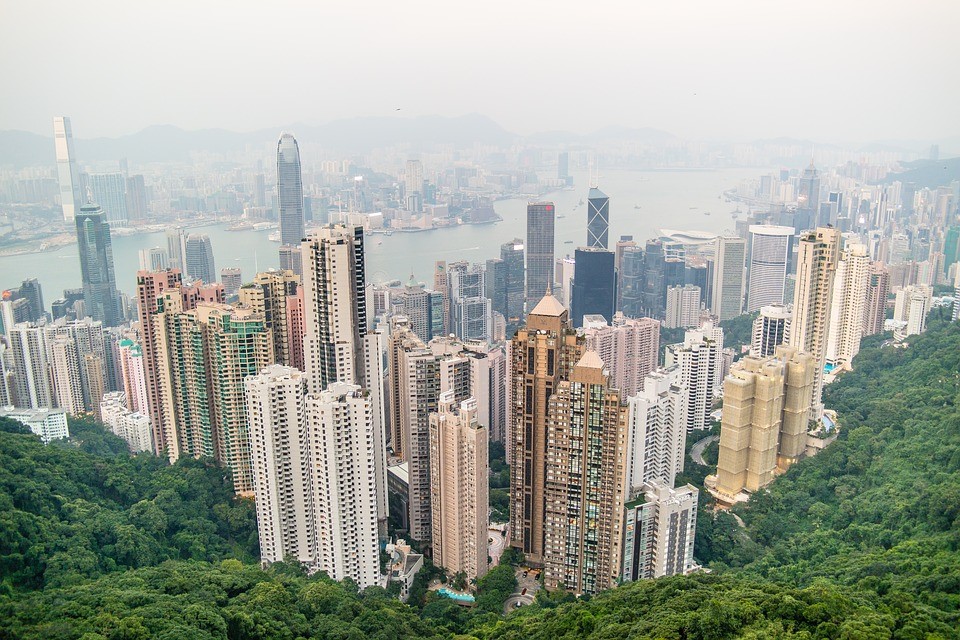Offshore
Hong Kong: Open For Business

Some bankers and wealth managers in the jurisdiction tell us that life is "business as usual". The past few weeks have seen a resurgence of concern about what might be left of Hong Kong's legal autonomy - the issue is starting to prompt more commentary from Western powers.
The following commentary is from Shruti Advani, who is writing regularly for us at WealthBriefingAsia. Having been based in Hong Kong and familiar with the Asia-Pacific wealth management and private banking sector, she gives her take on the jurisdiction. (This news service recently reported on how wealth managers and others view Beijing's move to impose its will on Hong Kong.)
Hong Kongers are bracing themselves against the chaos tearing through the city’s business district as an unprecedented number of police target suspected pro-democracy protests. Bankers stepping out to grab lunch hurry past black-clad protestors; the foyer of the iconic HSBC building is a no man’s land and chants of “independence” can be heard while standing outside the Hong Kong Monetary Authority offices.
But the microcosm that is largely the expatriate financial services industry in Hong Kong carries on unscathed. “It’s business as usual,” confirms the head of one Singapore-based fintech who deals extensively with private banks in Hong Kong. “I have not noticed any dip in the business coming out of Hong Kong. Since the lockdown I have not been able to travel to Hong Kong as frequently as I used to, but we continue to pitch for business there.”
Hong Kong’s resilience in the face of prolonged uncertainty is corroborated by the flow of investor dollars into the region. Shares in the Hong Kong Exchange - a proxy for the territory’s future as a financial hub - are up by 28 per cent since March this year, while the broader benchmark has rebounded by 7 per cent. “Discussions around Hong Kong’s continued attractiveness need to be sector specific,” explains a lawyer at a Magic Circle law firm in Hong Kong. “A lot of multinationals will no doubt have contingency plans that include moving personnel out of Hong Kong. But for investment, capital raising and asset management activities, it will continue to be amongst the top two choices in the region.”
“Hong Kong is the de-facto conduit between China and the rest of the world,” insists a local tycoon who suggests that locker room talk at the Jockey Club is a more reliable sentiment-indicator than recent coverage in “Western media”. As are the trading volumes on the Stock Connect - a mechanism that allows Mainland investors to buy stocks in Hong Kong and vice versa, now in its sixth year of existence. Revenues in the current quarter have risen by 74 per cent on a quarterly basis, a record high.
Hong Kong also has a monopoly on direct investments into the Mainland. Despite relentless protests by the blackshirts marking 2019 as the utmost tumult in the 22 years since Hong Kong’s handover, foreign investors chose to route $760 million of the $1.8 billion they invested in China through the former colony.
A tacit understanding between Hong Kong tycoons - 64 billionaires at the last count - and the administration keeps political activism contained to the grassroots. Hong Kong’s richest man, Li Ka Shing, who is as much of an icon to equity investors as he is to taxi drivers (to be fair, the two groups overlap in Hong Kong), has voiced his support for Beijing. His son, Victor Li, reinforced the message saying that “the new law could help Hong Kong to stabilise and recover”. Despite pro-democracy activists seen snaking around the Lis’ Cheung Kong Centre offices in the hundreds, offices in the building - including those of Bloomberg and Goldman Sachs - are staffed and functioning.
Most protestors are young - students and those in entry-level jobs - with little to lose. While this may lend poignancy to their activism, it blunts its impact on the broader economic and financial framework.
With elections for the 70-member Legislative Council widely expected to continue as planned on 6 September, it is premature to expect the unrest in Hong Kong to recede. In all likelihood, pro-democracy protests will intensify leading up to the polls and the Central business district may become difficult to navigate on certain days. But the flow of capital and commerce is likely to continue unabated, as it has for the last 200 years.
